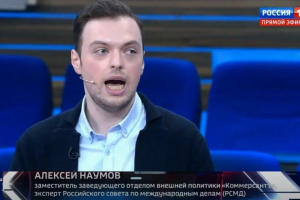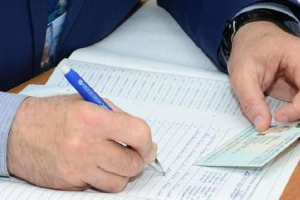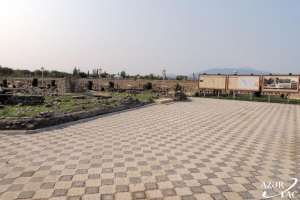


US Middle East envoy Jason Greenblatt announced a watershed development in ties between Israel and the Palestinian Authority on Thursday, stating that the two sides, with the support of the Jordanian government, will revive a deal outlining the transfer of fresh water from Israel to the West Bank.
The project involves the construction of a desalination plant in Aqaba that will provide fresh water to Jordan and Israel and carry brine to the Dead Sea in order to diminish its rate of decline. Israel has also committed to supplying additional water to Jordan and the Palestinian Authority.
Thursday's announcement is the result of an exhaustive diplomatic process, beset with political roadblocks that have dogged the touchstone issue of water access in the long-running Israeli-Palestinian conflict.
In his book, "Let There Be Water: Israel’s Solution for a Water-Starved World", author Seth Siegel argues that Israel’s water technology offers a global solution to a world facing fresh water shortage. In an interview with i24NEWS, Siegel made a compelling argument for why hydro-diplomacy could be the gateway for solving the Arab-Israeli conflict and explained how Israel could be a world leader in the realm of what he terms 'hydro-diplomacy'.
For Siegel, water is an issue that goes beyond political divides and “when you separate politics from policy, you will see very quickly that it’s something that the Palestinians appreciate.”
While Israel and the Palestinians don’t cooperate politically, when it comes to water, they are working together on a daily basis. Water pacts could replenish the wells of mutual trust in a peace process that has grown arid.
 Seth Siegel is the Author of Let There Be Water: Israel's Solution to a water-starved world
Seth Siegel is the Author of Let There Be Water: Israel's Solution to a water-starved world
“Israel provides more than half of the water the Palestinians use in the West Bank, Israel trains a large number of Palestinian water officials in up-to-date techniques,” Siegel said.
“I interviewed 20 Palestinians for my book, I gave the book to two Palestinian professors and I asked them to review it closely so that it wasn’t insensitive to the Palestinian perspective,” Siegel told i24NEWS.
“I spoke to former heads of the Palestinian water authority and what they say is that Israel is a solution to their problem, that it’s a lucky thing that they are neighbors with Israel.”
Additionally, Siegel believes any solution to the conflict between Israel and the Islamist Hamas organization that rules Gaza will also come through hydro-diplomacy.
“I have no doubt that the solution to the Gaza conflict is going to be partnership with Israel over desalinated water,” Siegel affirmed, explaining that today’s agreement could be part of larger global trend.
“I think that you’re going to see more and more of this in sub-Saharan Africa, you’re going to see more and more of this, in the Arab world,” Siegel said, stating that water rights was one of the five final status issues discussed in the Oslo Accords.
“If some 20-odd years ago in Oslo things looked impossible to solve and now we’ve solved one of them, maybe now we have this as a template for dialogue and other ways to solve the problem," Siegel said.
“It’s exciting both in terms of water and in terms of conflict resolution.”
Other countries may copy Israel’s adoption of hydro-diplomacy to solve conflicts. Recently, a delegation with members from India and Pakistan, countries which face similar challenges in terms of their conflict over shared resources, came to Israel in order to learn how Israel shares water with the Palestinian Authority despite the frayed relationship between the two.
Indeed Israel shares its water technology with more than 150 countries worldwide which Siegel said is remarkable considering there are not even 150 countries today that will freely admit to maintaining diplomatic or commercial relations with Israel.
“I already see in Arab countries that they are eager to adopt Israeli technologies and Israeli practices.This is going to become conventional wisdom among Arab leaders as well, ” Siegel predicts.
 Author Seth Siegel speaks at Cornell University about Israel's solution to the global water shortage
Author Seth Siegel speaks at Cornell University about Israel's solution to the global water shortage
Siegel has spoken to 220 audiences, telling the story of how Israel “conquered nature” by tapping into solutions that, against all odds, led to the country having a water surplus in a thirsty region with hostile neighbors.
While tragic news emerging from the Middle East washes over the arid region, Siegel’s Let There Be Water has become a New York Times and Los Angeles Times bestseller.
“I’ve spoken at 35 universities,” Siegel said, among them Harvard, Princeton, Yale, MIT, Cornell and Stanford. He affirmed that audience members ask him about water technology and not about politics.
He added that,“when Israel has the answer to problems, people are delighted to hear it.”
The Red-Dead Sea Conveyance Project was initially announced in Washington in 2013 but it was halted due to political disagreements between Palestinians and Israelis. Thursday’s announcement declared that the project will now move forward as previously intended.
Under the deal, the Palestinian Authority will receive 32 million cubic meters (MCM) of fresh water, while 22 MCM will go to the West Bank and 10 MCM will go to the Gaza Strip.
Siegel, who dedicated a chapter of his book to the project, sees it as “an excellent deal for all parties concerned.”
 A general view taken from Israel shows the Dead Sea with the Jordanian mountains in the background on July 11, 2016.
A general view taken from Israel shows the Dead Sea with the Jordanian mountains in the background on July 11, 2016.
The deal, according to Siegel, not only grants extra water for all parties involved but will also provide more jobs for Jordanians, Palestinians and Israelis. Additionally, it brings the added environmental benefit of helping to potentialy stabilize the Dead Sea and weaves together the Jordanians, Palestinians and Israelis.
“It’s a virtuous circle all the way around,” Siegel said.
Professor Uri Shani was Chairman of Israel's Steering Committee for the Red Sea – Dead Sea Channel international project and worked on the original negotiations for the deal which began over a decade ago in 2005.
For Shani, this agreement is “win-win-win.”
“I’m very happy Hanegbi signed this agreement,” Shani said, explaining that, when he began working on the project over ten years ago, it was difficult to get both sides to make concessions and there was no input from foreign governments.
“When we initially brought our suggestions to the Jordanians and the Palestinians,” Shani told i24NEWS, “it took them two years to get back to us because they were trying to figure out how we were trying to cheat them.”
After the Jordanian and Palestinian delegations realized Israel was not trying to trick them and that all the parties stood to gain, they agreed to sign.
“Trust is the name of the game,” Shani said. “Even when you disagree, you have to do it with full trust.”
“We made agreements without the Americans, the US refused to be signatories at first, along with the World Bank because they didn’t believe either side would even sign," Shani added. "Until the last minute, there were so many problems.”
One point of contention in the negotiations was over who would oversee aquifers in in the West Bank to ensure they wouldn’t become contaminated. Additionally, if wells were dug too deeply, they could be at risk of contamination from seawater from the Mediterranean Sea, making their contents undrinkable.
The Palestinian Authority also did not want to sign any agreement that would allow fresh water to be used by Jewish settlements in the West Bank because they believed it would encourage and normalize settlement construction.
Shani described the final signing of the deal in 2005 as “a miracle.”
“It was a lot of work."
As a humanitarian crisis in Gaza wreaks havoc, Israel fears that water will become a matter of national security.
Dr. Clive Lipchin, the Director of the Center for Transboundary Water Management at the Arava Institute for Environmental Studies said the deal itself is nothing new but the latest development adds a component that will provide additional water, some 10 MCM, to the Gaza Strip. This, he believes, will help the people of Gaza and is in Israel’s best and immediate interest.
One of the problems, as a result of the Gaza electricity crisis, is that Gazans aren’t able to operate their waste management facilities.
“So they are just discharging their wastewater into the Mediterranean Sea,” Lipchin said, explaining that “the sewage flows northwards, so it’s contaminating beaches in Israel, causing beach closures.”
 Israel is to supply millions of cubic metres of water to Palestinians including in the Gaza Strip, where a Palestinian boy is seen here cooling off with water from a jerrycan during a heatwave on July 2, 2017
Israel is to supply millions of cubic metres of water to Palestinians including in the Gaza Strip, where a Palestinian boy is seen here cooling off with water from a jerrycan during a heatwave on July 2, 2017
“The real concern is that the sewage can contaminate the desalination plant in Ashkelon and cause a potential shutdown,” Lipchin said. “So Israel's ability to desalinate could be compromised because of the electricity in Gaza.”
The only active power plant in the Gaza Strip was shut down late Wednesday night due to a severe fuel shortage, leaving its citizens in total darkness amid an ongoing energy crisis in the coastal enclave.
An economic and humanitarian crisis has been looming since since mid-April amid an ongoing dispute between the Palestinian Authority, which controls the Palestinian territories in the West Bank, and Hamas, the strip’s ruling faction.
Israel slashed its electricity supply to the Strip by 40 percent last month, from 120 to just 112 megawatts per day, in response to a request made by the Palestinian Authority which is angry that Hamas refuses to foot the bill for the utility.
Pandemics in Gaza threaten Israel’s security as well. The recent outbreak of diseases in Gaza, such as cholera, that know no borders, could easily cross the border into Israel.
 A Palestinian employee works at a desalination plant during the inauguration of the first phase of the project on January 19, 2017, in Deir el-Balah in central Gaza
A Palestinian employee works at a desalination plant during the inauguration of the first phase of the project on January 19, 2017, in Deir el-Balah in central Gaza
“You’ve got nearly two million people that are desperate for basic survival, it’s very dangerous for us,” Lipchin added.
But Lipchin sees this deal only as a temporary solution to the crisis in Gaza.
“These amounts of water are really very small, it’s like a band-aid solution, because the water needs for Gaza are probably ten times what they are providing at the moment,” Lipchin said.
“The long term solution for Gaza is desalination in Gaza,” Lipchin said, affirming that he believes “that will never happen without a political agreement” between both sides.
Still, Lipchin sees Jordan as the key player which revived the deal and brought it back to the public forefront.
“What pushed to get the issue moving again was Jordan,” Lipchin said, explaining that the country is so desperate for water due to the regional refugee crisis.
“It’s about producing more water for Jordan’s facility,” Lipchin asserted, affirming that the deal always included water for the Palestinians but is mostly a deal for the Jordanians.
The Trump administration wants to show they are making progress on the peace process between Palestinians and Israel, Lipchin believes, but this is just a political facade.
“The bottom line is it’s a project for Jordan and it’s water for Jordan,” Lipchin said.














